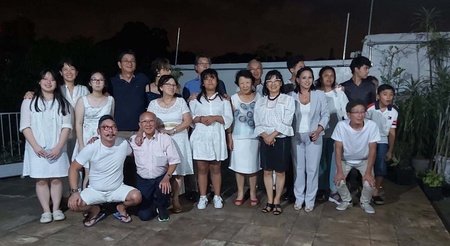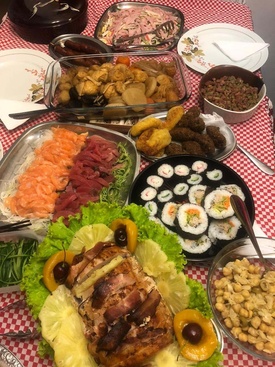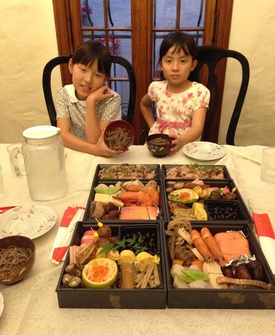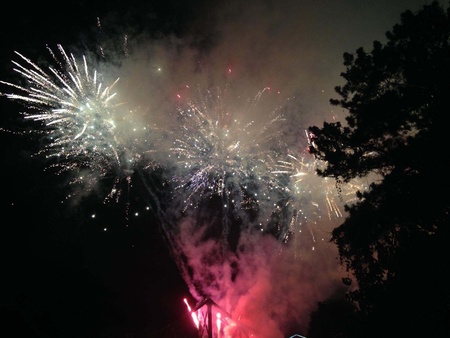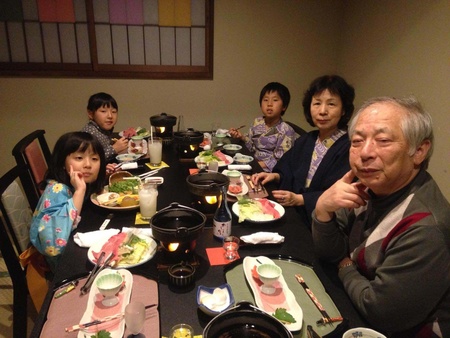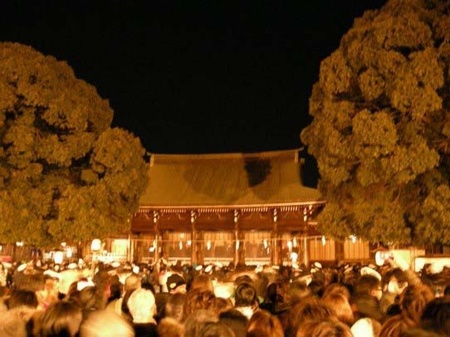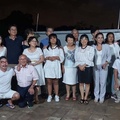Another year is starting! Usually, it is time to reflect on how the year went, on everything we've done, good or bad, planning new plans, wishes and promises for new year. I believe this should not be different for anyone around the world, regardless of culture and religion.
However, the way of celebrating New Year's is certainly different in each country, also for me, it is different when I was in Brazil and now in Japan.
In Brazil, generally Christmas was celebrated with family and New Year with friends. In my family, however, both Christmas and New Year are celebrated with family.
Family here has the broader meaning, which includes not only parents, brothers, wife, daughters, sisters, nephews, and nieces, but also grandfathers, grandparents, uncles, aunts, cousins, and other distant relatives. I think this comes from the influence of Latin and Christian culture that everything turns into a big family reunion.
Every year, the New Year of Nikkei Brazilian family begins on the morning of the 31st, watching the Kohaku utagassen (Japanese red and white song battle) that airs on NHK WORLD at each house. In the evening, my relatives came to my house with food and sweets, and by about 8 p.m. they all gathered at my house.
On the big table, all food brought by relatives and dishes made by my mother were put on. We have not only Japanese foods, such as sushi, sashimi, and osekihan (red rice with azuki beans), but also traditional Brazilian celebration food, such as roasted turkey, pork, and others. It was my family tradition for never lack of food on the table. I'm not sure where this came from, but I think it is same for any family.
Another tradition was for wearing white clothes which means peace combined with other color cloth or ornaments (earrings, brooches, bangles, etc.) to symbolize another desire such as yellow for money or green for hope etc.
Also, when I was a kid, I remembered watching Kouhaku Utagasen in a TV prgoram called Images of Japan. Perhaps for Nikkeis over 40s have some memories of watching about Japan on this show with their grandma and grandpa every Sunday when they were kids.
At midnight, we all count down together. Then, at the beginning of the year, we toast and hug each other, and each one gets fireworks to celebrate the New Year. At this time, although it has already been eaten a lot, toshikoshi soba, whcih is indispensable for the New Year, is served.
After that, the aunts start cleaning up, while children continue to play karuta until the morning. Then, on New Year's Day, we ate the ozoni and foods that left over the night before, and spent the whole day with my family.
From New Year's Eve to New Year's day, everyone talks, eats, and drinks with a lot of laugh. For me, New Year's Day in Brazil was a day when my family got together and enjoyed talking.
And now, living in Japan, oshogatsu is celebrated in a different way. It is calm and quietly with my wife, daughters, parents-in-law, brothers-in-law and their children.
Our family's New Year in Japan begins with an onsen (hot spring) trip at the end of the year. Usually, from December 29 or 30, my family, my brother-in-law's family, and my parents-in-law go to the onsen. Children play with their cousins and we adults take the time enjoying delicious food and drinks, and return home on the 31st. Thankfully, my spouse's grandmother, who stayed at home, prepared New Year's dishes, and the whole family celebrated the New Year on the 1st.
In the past in Japan, almost every shop and restaurants were closed until January 4, so I had to spend three days at home, but it didn't really matter to us. Recently, we all take a walk in the town. Even if you find an open shop or restaurant, everyone doesn't stop by, but the only thing we buy is a fukubukuro (lucky bag) filled with various surprise items that you don't know what's inside.
A traditional event in Japan is to watch the hatsu-hinode (the first sunrise) which people stay up until watch the first sun rise of the new year. I've done it once, but now it's so hard.
Also, it seems that many people go to the shrine from midnight to the beginning of the year in New Year's Eve. When I came here to study in Japan (ryugaku), I once walked from Ebisu to Harajuku stations with my school friends at dawn. We saw a lot of people going to Meiji Shrine (Meiji Jingu) on the way, so we followed them. I thought I'd turn back after seeing a huge crowd of people going to the hall of worship, but it was too late. We were already stuck in the crowd, so we went to worship. It was a great experience, but I don't want to do it again. It may be a good idea to visit another shrine on the evening of New Year's Day or the 2nd, when the shrine were not that crowded.
Since I love marathons, I am looking forward to the January 2 and 3 when the Hakone Ekiden was happening. It's the relay marathon by university students teams, running 217km route between Tokyo and Hanoke.
However, the best memories of oshogatsu in my family were in 1999/2000 in New York at Time Square and 2000/2001 in Paris on the Champs Elysees, both among people from different corners of the planet in a loud chorus of countdown. Especially in Paris, I will never forget it becuase I met my childhood friend who I married.
What has changed recently? I believe that thanks to the internet, it become possible to communicate at any time, and family and friends can be closer even if they are far away. We can also watch online the countdowns all over the world, and enjoy again that feeling of being together again in Paris or in New York
If you are going to spend this New Year with the big family like I use to do in Brazil, lucky you, please enjoy! If you are going to spend in a more quiet, reflexive way, that’s amazing too.
But what remains the same now and in the past is the hopes and expectations that the coming year will be better one.
Happy New Year!
© 2022 Antonio Kotaro Hayata


